A girl, once labeled “wolf girl” and “monkey face” by her peers, knew that her condition wouldn’t stop her from finding happiness. Eventually, she discovered the love of her life, and her story reveals the profound impact it had on her life.
Supatra “Natty” Sasuphan, once dubbed the world’s hairiest girl, faced ridicule and fear from her classmates due to her unique appearance.
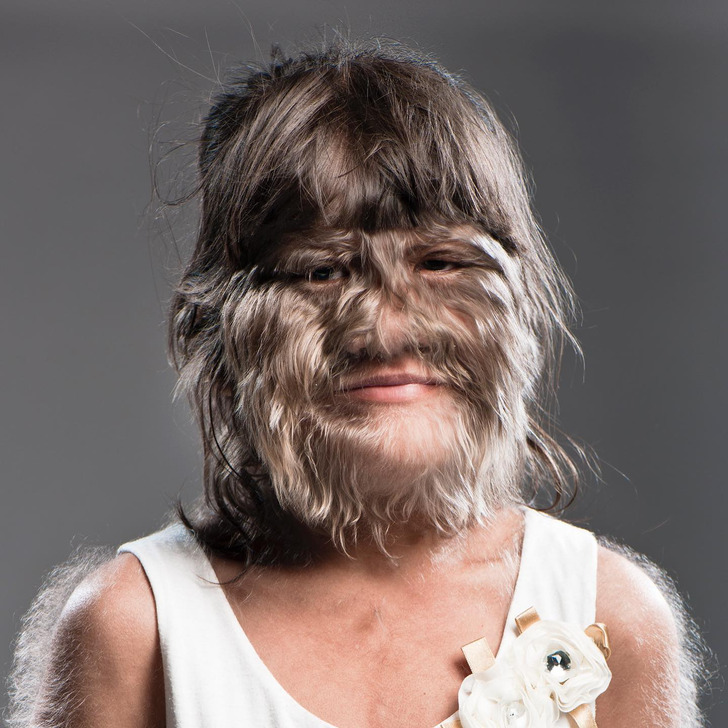
On August 5, 1999, something important happened in Supatra’s family. Usually, when a new baby is born, parents feel really happy and excited. That’s how Supatra’s mom and dad, Sompon and Samrerng, felt when she was born.
But their happiness was mixed with surprise, fear, and disbelief because the doctortold them their baby had a lot of hair. At first, they thought it was normal, but when they saw her in the incubator, they were shocked by how much hair she had. Supatra’s hair covered almost her whole body, and even the doctors in Thailand had never seen someone like her.
Later on, doctors figured out that Natty had a very rare skin disease called Ambras syndrome. This condition is so uncommon that there have only been 50 cases like hers documented in the world since a long time ago.
Ambras syndrome causes excess body hair growth, sparing only the palms, soles, and mouth interior, likely due to a sudden DNA change.
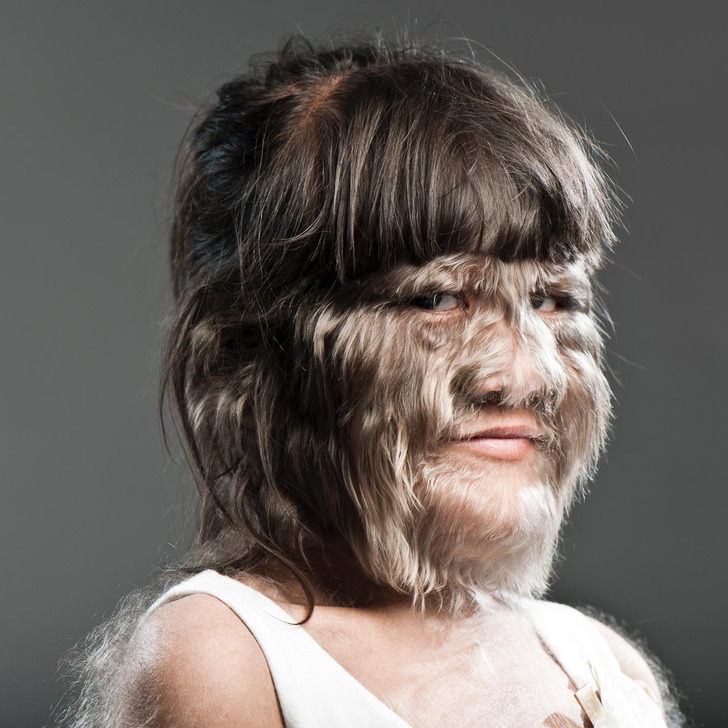
When Natty was born, and her mom wanted to leave the hospital, the doctors didn’t want to let her go because they were worried she might leave her child behind. Sompon told the doctor that she would never abandon her child, no matter what. She said, “We are lucky that she was born into our family.”
Natty grew up in a loving family, but not everyone was understanding of her condition, and she had to deal with some unkindness from strangers and peers.
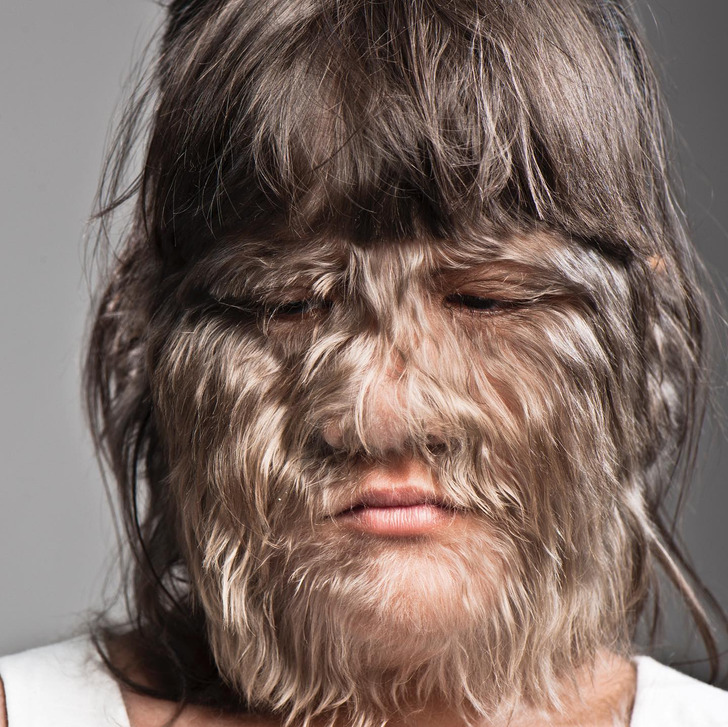
As Natty grew up, her face remained hidden behind thick hair due to her incurable Ambras syndrome. Regular methods like laser removal couldn’t slow down her hair growth. At school, she faced ridicule because of her unique appearance. Kids called her names like “wolf girl” and “monkey face.”
Natty, however, didn’t understand why they teased her, as she considered herself a normal girl with just a bit more hair. She stated, “It’s the way I am.”
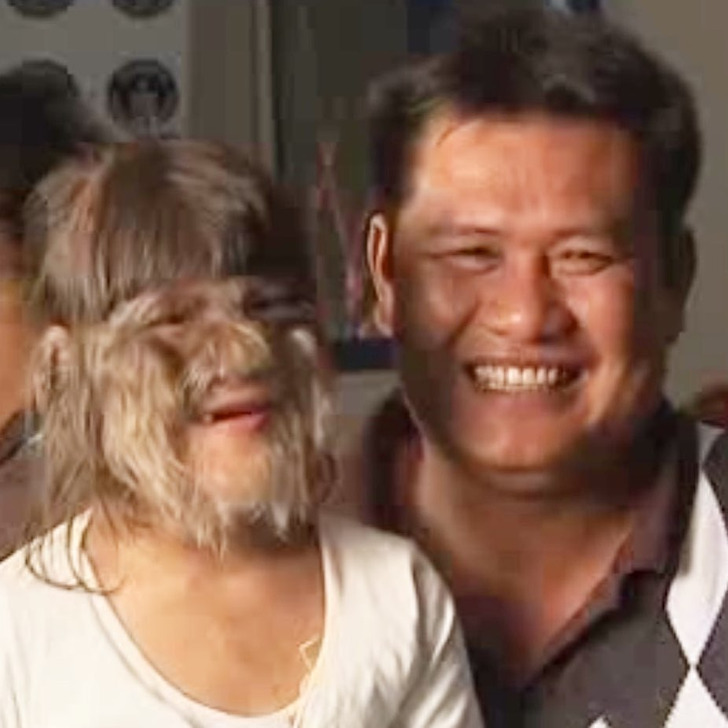
Natty’s teacher, Kuljira Posaeng, revealed that other kids were initially scared of Natty’s appearance, making her early school days difficult. Over time, though, Natty proved she was just like any other student. Teachers described her as hardworking with good grades, and she eventually became one of the most popular kids at school.
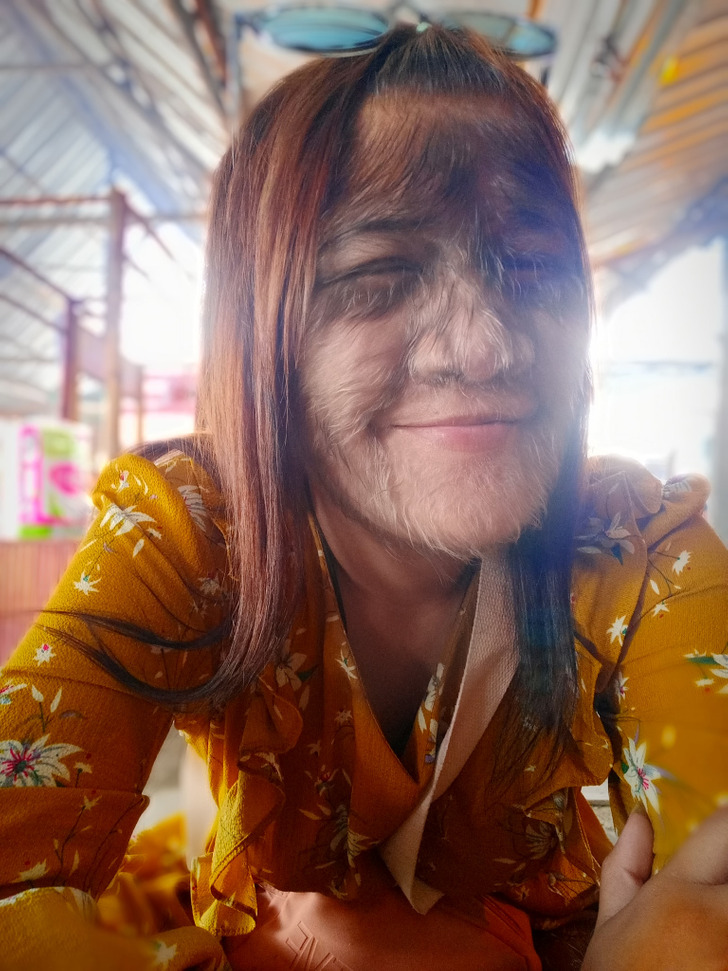
Natty’s teachers said she was a lively girl who loved to sing, dance, and act. Her parents treated her just like any other kid, and they never made her feel like she was less important. They took her everywhere and weren’t embarrassed that she looked different from other children.
Later on, Natty found her love.
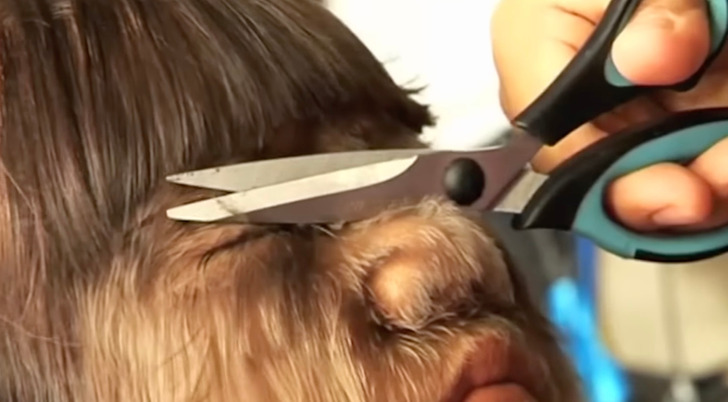
Natty has come to terms with her condition, understanding that there’s no cure for it. She decided to keep her body hair the way it naturally grew from the time she was born, only shaving her face when she became a teenager. As she grew older, her self-esteem and self-image became more important to her, and she also found love.
She shared: “It began from friendship, then we became a couple.” Their conversations brought her happiness, and being together was comfortable, with a love she didn’t anticipate: “It was a kind of love that I didn’t expect would happen to me.”
Natty later married her boyfriend, calling him “the love of my life.”
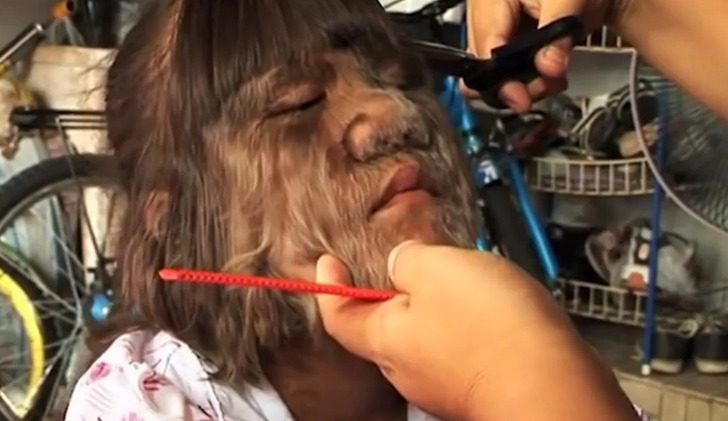
She also posted pictures with her lover, showing her face without facial hair. Some people thought she might have been cured, but her dad explained that she had chosen to shave her facial hair to reveal her new look. Now, her eyes, face, mouth, lips, and cheeks are visible, with only her forehead covered by her head’s hair.
Natty, who has found love and happiness, is determined to lead a positive life and continue making a beautiful impact on society. She believes that everyone is beautiful and unique in their own way, and she wants to inspire others to embrace their individuality and radiate their inner beauty.

Before you go, be sure to check out another article where a woman shares her story to emphasize that body hair shouldn’t be criticized, highlighting the importance of self-acceptance and embracing one’s uniqueness.
Preview photo credit Guinness World Records / Facebook, truly / Youtube
From Dancing Queen to Mystery: What Made Cynthia Rhodes Leave the Spotlight
When Cynthia Rhodes wasn’t “Staying Alive” on the dance floor with John Travolta, she was “Dirty Dancing” with Patrick Swayze.
Rhodes, who will turn 67 in November 2023, had a great career with famous dance movies from the 1980s. However, she chose to step away from the spotlight at the height of her fame.
Keep reading to find out why this talented actress, singer, and dancer retired so early!
Cynthia Rhodes was born in Nashville, Tennessee. She started her acting career with a small role in the 1980 musical fantasy film **Xanadu**, which starred the late Olivia Newton-John and Gene Kelly.
Her role as Tina Tech, a dancer in the 1983 film **Flashdance**, led to a bigger part later that year as John Travolta’s love interest in **Staying Alive**, the sequel to **Saturday Night Fever**, directed by Sylvester Stallone.
In 1987, she played her most famous role as Penny Johnson, a dance instructor at a resort hotel in **Dirty Dancing**.
In her role as Penny, Cynthia Rhodes shows off her amazing dance skills with graceful and flashy Mambo moves alongside the late Patrick Swayze. She also shares some very emotional and heartbreaking scenes with him.
Rhodes described her character Penny as having an “edge.” Penny both charmed and shocked viewers as she dealt with a difficult storyline involving a botched illegal abortion.
The film includes a socially relevant subplot about reproductive rights, with Rhodes at the center of it all. This helped position the three lead characters—Swayze as Johnny, Jennifer Grey as Baby, and Rhodes as Penny—for stardom.
“She’s from South Philly and she’s had a rough life,” Rhodes said about her character. “She’s got a sweetness about her, but it’s hidden because she’s been through a lot, and she has sort of put up a wall.” Rhodes added, “In the end, I think she finally realizes that life does go on.”

Life went on for Cynthia Rhodes, but not in the way her fans hoped.
After training for ten hours a day to prepare for her role as Penny, Rhodes found dancing to be “really hard.” She shared, “That’s why I keep saying I’m never going to dance again. I’m tired of dancing. My bones are hurting, and my back hurts all the time.” She added, “Every time I say, ‘That’s it, I don’t want to dance anymore,’ I get another film. I’m not going to turn down work! I feel very fortunate to be in films that involve dancing. But I just want a chance to do some dramatic work without dancing. Just give me a straight acting part.”
In the same year that *Dirty Dancing* was released, the 31-year-old Rhodes, who had many role options and admirers, appeared in the music video for “Don’t Mean Nothing” by Richard Marx. He is also known for the song “Right Here Waiting,” which was famously written for Rhodes in 1989.
In 1989, Rhodes married the Grammy Award-winning singer Richard Marx, and the couple welcomed their first child, Brandon, in 1990. They later had two more sons, Lucas in 1992 and Jesse in 1994.
According to Marx, Rhodes, who had previously trained for the Olympics, decided to retire in 1990 to focus on raising their children. He mentioned that this choice was also due to the “intense physical pain” her dance moves caused her.
“I thought, ‘This won’t last; she’s definitely going to want to come back to work and do films.’ But she found fulfillment in being a mom that completely overshadowed any desire she had to make movies,” Marx, now 59, explained. “Even if you’re her biggest fan, as good as you think she was as a dancer, singer, or actress, you should see her as a mom.”

Rhodes, who began dancing at just three years old, found that she was much happier being a mom and giving her body the rest it needed.
“The thing was, I used to never be sore. In fact, I was a gymnast. Now it’s frustrating… I never used to stretch, but now I have to stretch before I dance. I love to dance, but if I never did it again, I wouldn’t be sorry,” Rhodes said.
Since then, she hasn’t looked back. The last time she appeared on screen was in the 1991 film *Curse of the Crystal Eye.*
The former Hollywood starlet divorced Marx in 2014, and he married MTV’s first Latina host, Daisy Fuentes, the following year.
As for her sons, all three are following in the footsteps of their famous parents. Brandon is now a music producer and singer, while Lucas has made a name for himself as a singer and actor, appearing in TV series like *The Chicago Code*, *The Mob Doctor*, *Chicago P.D.*, and *Parenthood*. The youngest son, Jesse, has joined a metal band and is working on his own music.
Dancing requires a high level of athleticism, so while we miss seeing Cynthia Rhodes, we completely understand why she chose to leave Hollywood.
What are your favorite films featuring her?
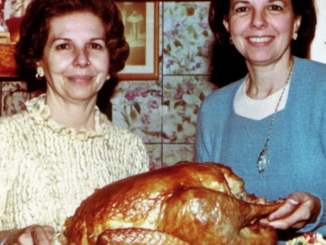


Leave a Reply